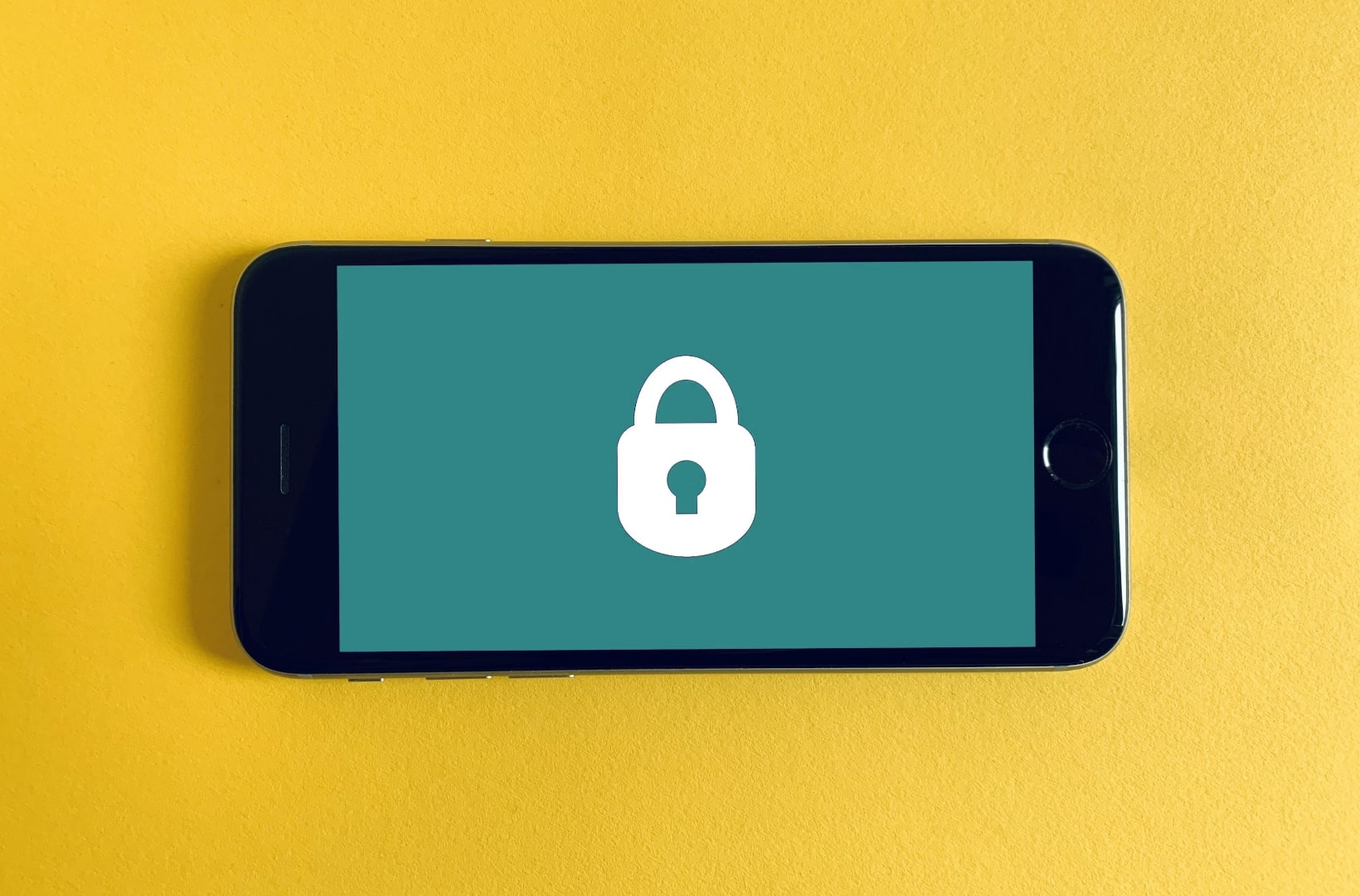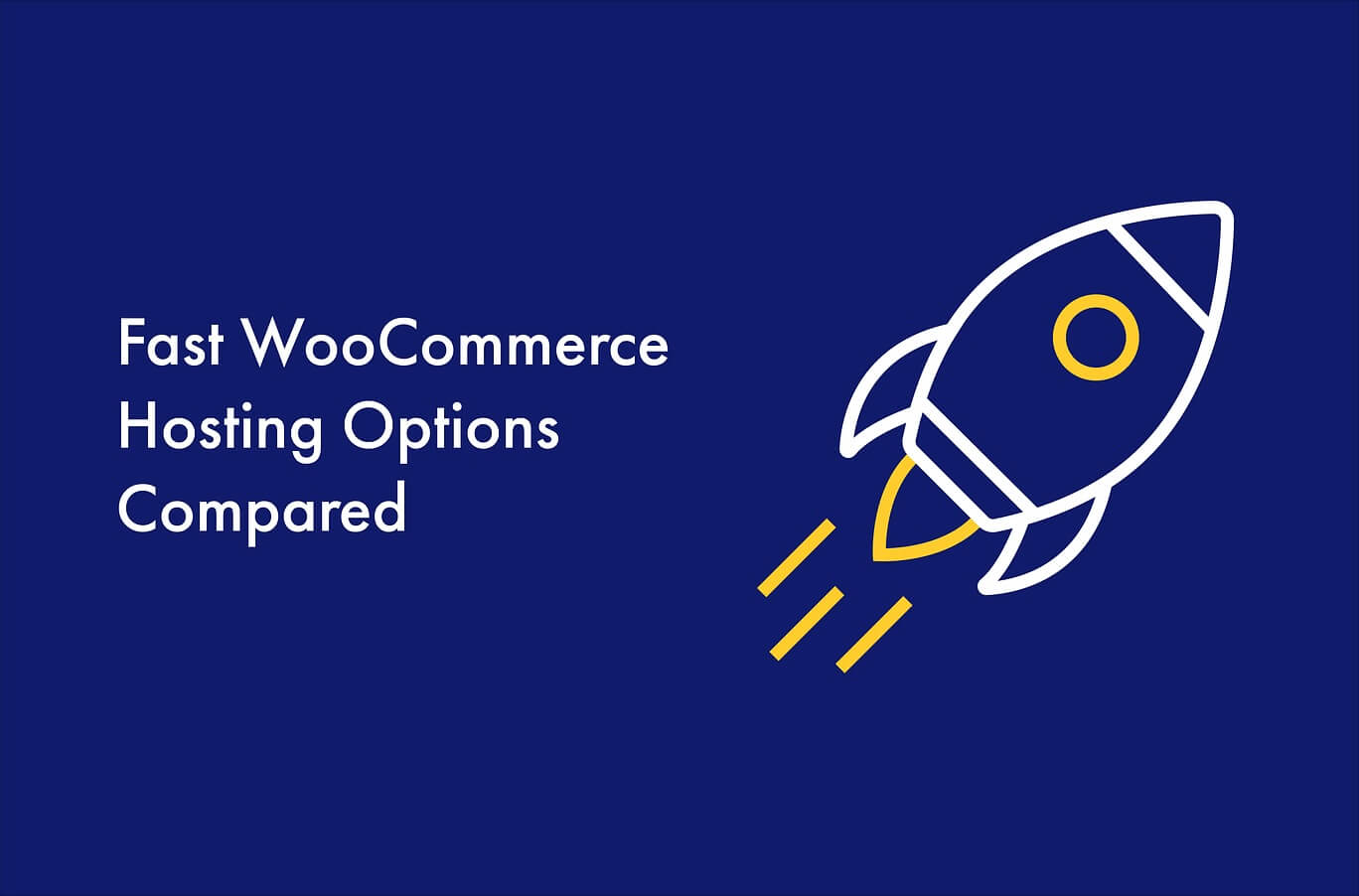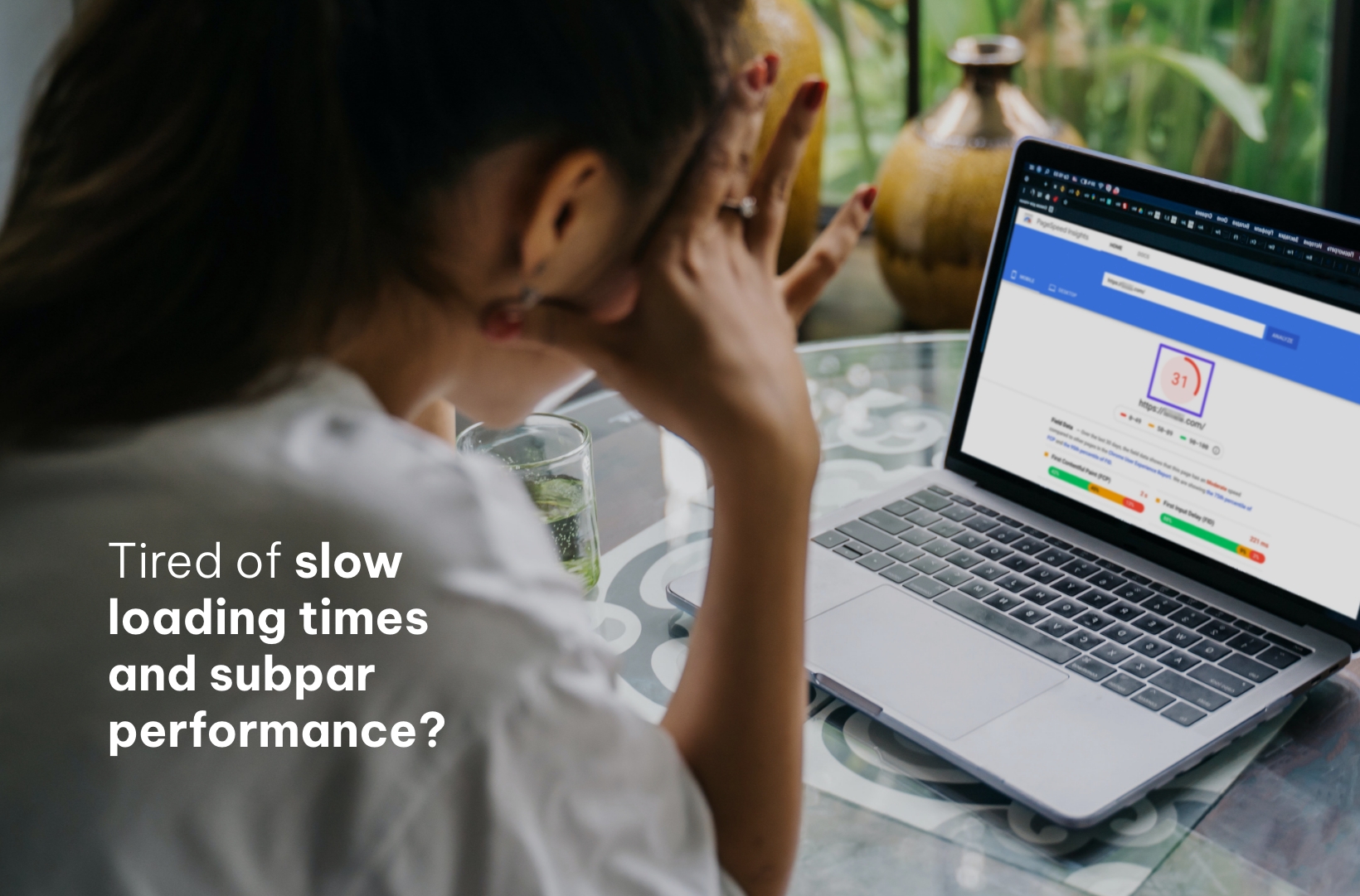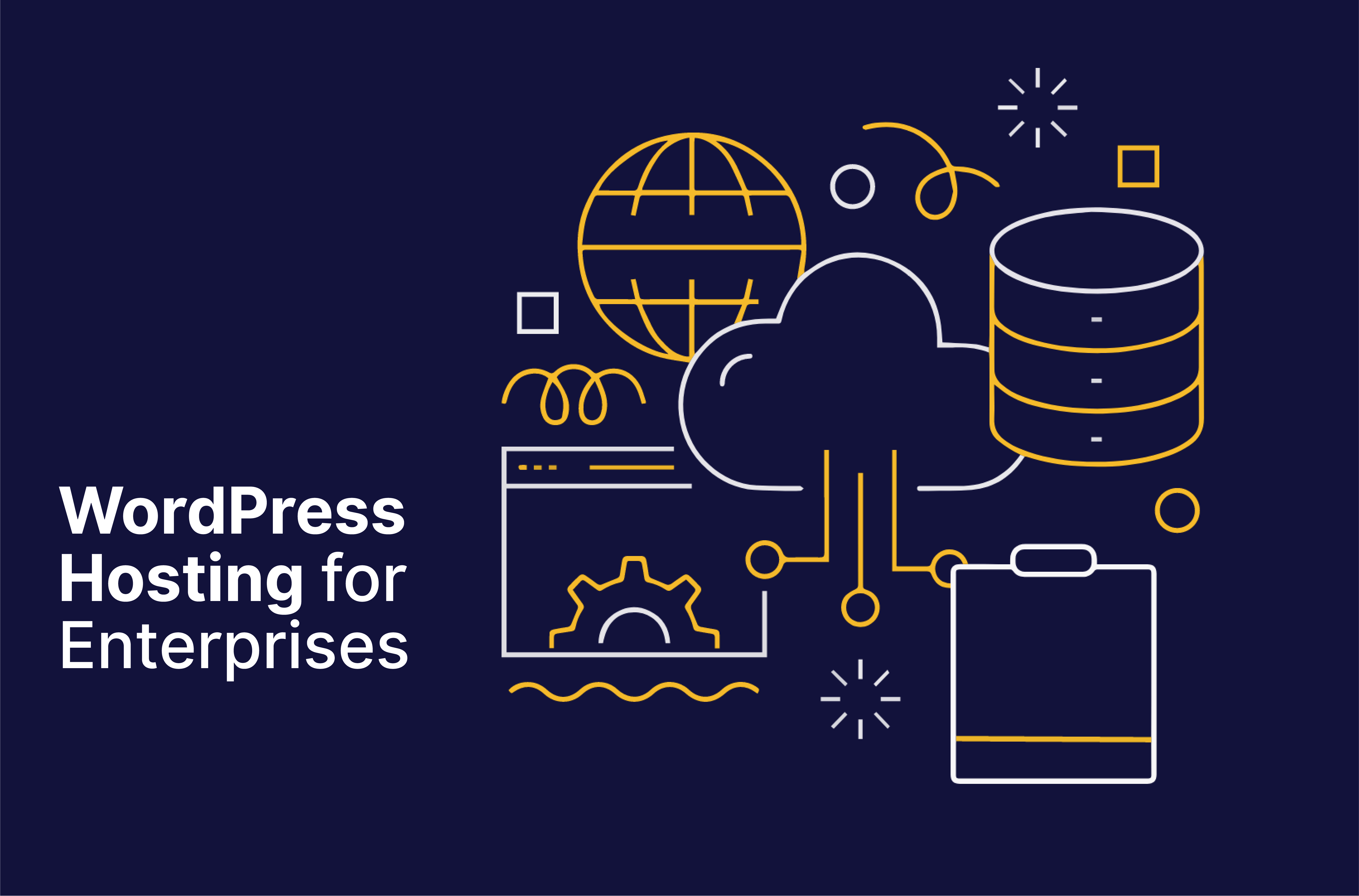The Importance of PCI-compliant Hosting

Have you ever wondered how to improve the security of your customers’ financial data? If so, you’re not alone. In a world where protecting sensitive information is more critical than ever, PCI-compliant hosting comes into play.
As a WooCommerce store owner, ensuring the safety of your customers’ sensitive data and financial transactions is paramount. It’s not just about building trust and maintaining your reputation – it’s about meeting legal and industry standards.
One such standard is the Payment Card Industry Data Security Standard (PCI DSS), a set of requirements designed to ensure that all companies that process, store, or transmit credit card information maintain a secure environment.
Navigating the complexities of PCI compliance can be daunting, but fear not. This article is here to help! We will explore the importance of PCI compliance and walk you through how to ensure you can process payments in a secure environment.
As we get started, it’s also important to clarify that PCI-compliant hosting provider is not strictly necessary if you’re using PCI-compliant payment gateways. It’s much better to focus on having a secure and reputable provider that is able to support PCI-compliant eCommerce activities, rather than simply rely on individual service providers for PCI compliance.
Whether you’re a small business owner, a web developer, or an IT professional, this comprehensive guide will provide you with the insights you need to make informed decisions about PCI-compliant hosting.
Understanding PCI-compliant hosting
PCI-compliant hosting involves web hosting services that meet the stringent requirements of the Payment Card Industry Data Security Standard, commonly known as PCI DSS.
This set of standards is designed to ensure that all companies that accept, process, store, or transmit credit card information do so in a secure environment, thus safeguarding cardholder data against theft and ensuring the integrity of transactions. Here’s what Kostas Seresiotis, Senior Product Engineer at Saucal had to say about the importance of PCI-compliant hosting.
Most modern payment processors will offer a solution that does not require PCI compliance on the site level, but If your payment integration does require your site to be PCI compliant, then choosing a PCI compliant host is essential and helps you tick quite a few boxes on the compliance checklist.
Now, let’s delve into the specific steps that are essential for a hosting provider to be considered PCI-compliant:
1. Install and maintain a firewall configuration to protect cardholder data
A firewall is the first line of defense in any security model. It serves as a barrier between your secure internal network and untrusted external networks such as the Internet. A properly configured firewall will only allow authorized traffic to pass through, thereby protecting cardholder data from unauthorized access.
2. Do not use vendor-supplied defaults for system passwords and other security parameters
Hackers often target systems that still use default passwords or settings, as these are usually well-known and easy to bypass. Changing these defaults adds an extra layer of security to your hosting environment.
3. Protect stored cardholder data
Stored credit card data should be treated like gold in a vault. It should be rendered unreadable through encryption or another secure method, and access to this stored data should be restricted and carefully monitored.
4. Encrypt transmission of cardholder data across open, public networks
Any cardholder data that is transmitted over an open network must be encrypted using strong algorithms to ensure that even if someone intercepts the data, they can’t read it. This is particularly crucial for eCommerce businesses that rely on real-time transaction processing.
5. Use and regularly update anti-virus software or programs
Antivirus software detects, prevents, and takes action to disarm or remove malicious software programs, such as viruses and worms. It is a fundamental aspect of protecting sensitive cardholder data.
6. Develop and maintain secure systems and applications
Security vulnerabilities in systems and applications can serve as easy targets for attackers. Regular software updates and patches are essential to plug these security holes and protect cardholder data effectively.
7. Limit access to cardholder data to individuals whose job responsibilities require them to have it
Not everyone within your organization needs access to sensitive cardholder data. Limit access to only those who need it to perform their jobs, thereby reducing the risk of internal data breaches.
8. Assign a unique ID to each person with computer access
Unique identification credentials for each person accessing your system make it easier to trace actions back to their source, thus ensuring accountability and aiding in fraud detection.
9. Restrict physical access to cardholder data
While much of the focus is on digital security, physical security is just as important. Server rooms and data centers should have limited, monitored, and controlled access to ensure complete protection of stored cardholder data.
10. Track and monitor all access to network resources and cardholder data
Continuous tracking and logging of all interactions with network resources and cardholder data make it possible to perform forensic analysis in case of a data breach or other security incidents.
11. Regularly test security systems and processes
Regular security audits, vulnerability scans, and penetration tests are essential to find out if your security measures are up to the mark and to make improvements where necessary.
12. Maintain a policy that addresses information security for all personnel
Everyone in the organization should be aware of the importance of data security. An overarching security policy helps ensure that all staff members are aligned in their efforts to protect cardholder data.
By ensuring that your hosting provider adheres to these key requirements, you guarantee that it’s PCI-compliant and well-equipped to safeguard your customers’ financial information.
Why is PCI compliance important for your business?
At its core, PCI compliance is about ensuring the secure handling of cardholder data. Every time a customer makes a transaction on your website, they are entrusting you with their financial information.
If your hosting environment and transactional processes are PCI-compliant, you are adding multiple layers of security that protect this sensitive data from being hacked or stolen. This protection isn’t just beneficial for the customer; it also shields your business from the potentially devastating fallout of a data breach. Here’s what Kostas Seresiotis, Senior Product Engineer at Saucal had to say about the importance of PCI-compliant hosting.
Think of PCI compliance as a mutually beneficial security pact between you and your customers.
The high costs of non-compliance
Non-compliance with PCI DSS isn’t just risky – it can be catastrophically expensive. The consequences extend far beyond the immediate financial repercussions, which can include hefty penalties and fines levied by credit card companies and regulatory bodies. Your business could also face lawsuits and legal actions that add to these financial burdens.
However, arguably the most damaging consequence of non-compliance is the irreversible damage to your brand’s reputation. Customers are quick to lose trust in businesses that expose them to financial risk, and the news of a data breach spreads fast in the age of social media. Rebuilding your brand’s credibility after a data breach can be a long, arduous, and expensive process. In extreme cases, some businesses never recover.
Building customer trust and loyalty
In a landscape cluttered with countless online shopping options, trust becomes a significant differentiator. Customers want to know that their data is safe, and visibly complying with recognized standards like PCI DSS can go a long way in establishing that trust.
When people know that a business is doing everything it can to protect their financial information, they are more likely to become repeat customers, potentially turning into brand advocates who also bring in new customers.
By choosing a PCI-compliant hosting provider and ensuring secure transactional processes, you not only protect your business but also create a positive feedback loop of customer trust and loyalty, which in turn fuels business growth.

Roles and responsibilities: Merchants vs. hosting providers
Merchants and hosting providers play pivotal roles in the complex ecosystem of online transactions, but their responsibilities, while intertwined, are distinct. Let’s navigate the division of duties and the collaborative relationship that needs to be nurtured between merchants and hosting providers.
In earlier days, hosting providers played a more central role in PCI compliance. However, with the evolution of online payment methodologies, the weight of compliance has shifted. Today, many payment processors handle compliance on behalf of their clients.
Let’s consider a common scenario:
If you run a WooCommerce store, you’re likely relying on third-party payment gateways like PayPal, Stripe, or Square. These gateways process the actual credit card transactions, ensuring that the card data typically doesn’t reside on the WooCommerce host‘s servers.
Instead, it is securely channeled to the payment gateway provider for processing. This mechanism drastically reduces the PCI compliance burden for the hosting provider.
However, this doesn’t eliminate the responsibility altogether.
The merchant’s role
Merchants shoulder the lion’s share of responsibility when it comes to PCI compliance. Their primary duties include:
- Securing cardholder data: While the actual transaction might occur through third-party payment processors, merchants must ensure that any cardholder data they handle, store, or transmit is securely managed.
- Maintaining secure systems and applications: Regular updates, security patches, and proactive measures to safeguard against vulnerabilities fall squarely on the merchant’s shoulders.
- Implementing access controls: Determining who within their organization has access to sensitive data, and ensuring controlled, traceable access is essential.
- Submitting compliance reports: Merchants are required to periodically submit reports demonstrating their adherence to PCI DSS guidelines.
The hosting provider’s role
While hosting providers have seen a reduction in their PCI compliance responsibilities, they are far from being passive players. Their core duties revolve around:
- Securing network infrastructure: Providing a secure hosting environment free from vulnerabilities that could be exploited is paramount.
- Configuring firewalls: Firewalls, as the first line of defense, need to be accurately configured and periodically audited.
- Server management: Ensuring that servers are routinely patched, updated, and checked for security vulnerabilities is a must.
- Maintaining physical security: It’s not just about digital security. Ensuring that data centers and server rooms are secure against physical intrusion is equally critical.
For seamless PCI compliance, open communication and collaboration between merchants and hosting providers are indispensable. Merchants should be transparent about their requirements, and hosting providers should proactively share security measures, potential vulnerabilities, and solutions.
This collaborative stance ensures that both entities work in harmony, leading to robust PCI compliance and, ultimately, a safer environment for cardholder data.

Steps to achieve PCI compliance for your website
Achieving PCI compliance may seem like an intimidating mountain to climb, especially if you’re not familiar with the intricate guidelines involved. Fortunately, it’s entirely manageable when broken down into individual steps.
1. Determine the scope
The first step involves identifying all the systems, processes, and people that come into contact with cardholder data on your website. This scoping activity lays the groundwork for understanding the extent of your PCI compliance requirements.
2. Complete a Self-Assessment Questionnaire (SAQ)
Depending on how your website processes payments, you’ll need to complete a specific self-assessment questionnaire to gauge the existing compliance level and identify areas for improvement.
3. Secure network and systems
Begin by implementing a robust firewall to serve as your website’s initial line of defense. Regularly update your software and utilize strong access control measures. The goal here is to fortify your network against unauthorized intrusions.
4. Encrypt data
Utilize SSL (Secure Sockets Layer)/TLS (transport layer security) certificates to encrypt cardholder data during transmission. This ensures that the data remains unreadable and secure as it travels across the internet.
5. Protect stored data
If you must store cardholder data, ensure it’s kept in a secure environment. Employ encryption, tokenization, or other protective measures to restrict access to the stored data.
6. Develop secure applications
Security is only as strong as its weakest link. Implement secure coding practices for your website and applications, and regularly conduct vulnerability assessments.
7. Restrict access
Limit access to sensitive cardholder data to those within your organization who genuinely need it to perform their duties. Always assign unique IDs to individuals, which makes it easier to track actions and identify potential internal vulnerabilities.
8. Monitor and track access
Employ logging mechanisms that record who accessed what data and when. Regular audits of these logs can be invaluable in identifying suspicious activities early on.
9. Regularly test security
Conduct routine vulnerability scans and penetration tests. These activities help uncover any security holes that could be exploited by attackers.
10. Develop an information security policy
Draft a comprehensive policy addressing information security protocols, practices, and expectations for all personnel. Ensure this policy is regularly updated and disseminated within your organization.
11. Engage with PCI-compliant vendors
If you’re using third-party services, ensure they too are PCI-compliant. Remember, compliance is a chain, and a single weak link can compromise the entire system.
12. Submit compliance reports
Depending on your processing volume and your agreement with payment brands, you may be required to submit compliance reports periodically.
Security is an ongoing process; software vulnerabilities can be discovered at any time and making regular updates and patches is crucial for maintaining compliance.
Look into options like multi-factor authentication, network segmentation, and intrusion detection systems to further bolster your security infrastructure.
Opt for PCI-compliant hosting providers
While it’s not a strict requirement, choosing a PCI-compliant hosting provider can simplify this complex process. They handle many aspects of PCI compliance, from securing network infrastructure to managing server security.
However, it’s vital to understand that even if you opt for such a provider, the responsibility for ensuring PCI compliance remains shared.

Selecting a hosting provider for PCI-compliant eCommerce: Key considerations
Choosing the right hosting provider for your eCommerce business has far-reaching implications for performance, security, and overall customer experience. Let’s dive into the key considerations for selecting a hosting provider adept at supporting PCI-compliant eCommerce operations:
- Security measures: Look for a provider with robust security protocols that include firewalls, SSL certificates, and regular security audits.
- Certifications: Verify if the provider has relevant certifications like ISO 27001 or PCI DSS itself, which validate their commitment to security.
- Uptime: In eCommerce, time is money. Ensure the provider guarantees at least 99.9% uptime to minimize the risk of lost sales due to website downtime.
- Load times: A slow website can drive customers away. Investigate the provider’s infrastructure and technology stack to gauge how quickly your site will load.
- Customer support: Exceptional customer service is essential, especially when you encounter issues related to compliance or security.
- Pricing: While affordability is essential, the cheapest option is not always the best. Consider the value provided and weigh it against your budget.
Introducing Saucal: Your strategic WooCommerce partner
As you navigate these considerations, Saucal emerges as a dedicated partner on your business journey, offering enterprise-grade hosting in collaboration with Convesio.
Convesio stands out in the hosting world for its container-based hosting solution, specifically designed to elevate the performance, scalability, and security of WordPress sites. The platform utilizes Docker’s container application development system, which has everything the software needs to run, including libraries, system tools, code, and runtime, and enables you to build, test, and deploy applications quickly.
For businesses that are just starting out and opting for the Starter plan, Saucal can help recommend suitable hosts tailored to the needs of your business. Options could include reliable players like Kinsta and WPEngine, known for their high-performance and secure hosting environments.
Why choose Saucal: Unmatched WooCommerce expertise and more
If you’re a large-scale WooCommerce store for which PCI-compliance is really important, in addition to choosing a solid hosting provider, you should also consider working with a development partner that can ensure you remain PCI-compliant every step of the way. Saucal offers managed WooCommerce services that help with this.
Saucal’s expertise in WooCommerce development sets it apart, providing businesses with a trusted partner to navigate the complexities of PCI compliance. Here’s how Saucal can support your business:
- Enterprise-level security and access monitoring: With the Launch and Growth plans, Saucal offers enterprise-level security measures and access monitoring, providing an extra layer of protection for your data.
- Secure payment gateway integrations: We ensure the secure integration of payment gateways, a critical aspect of maintaining PCI compliance.
- SSL/TLS implementation: Saucal assists with the implementation of SSL/TLS certificates, providing essential encryption for your data during transmission.
- Secure coding practices: We follow secure coding practices, reducing the risk of security vulnerabilities in your website.
- Regular updates: The company ensures regular updates for WooCommerce and its plugins, keeping your site secure and functioning optimally.
- Secure data handling methods: Saucal implements secure data handling methods, protecting sensitive cardholder data.
- Periodic security audits: We also conduct periodic security audits, identifying and addressing potential security issues.
Beyond technical expertise, Saucal can seamlessly extend your in-house team, filling knowledge gaps and solving technical problems. We believe in transparency, keeping clients informed and involved every step of the way, from project blueprint to weekly sprint reviews.
Saucal’s commitment to its clients extends to our managed WooCommerce upkeep services. We understand the importance of a seamless, uninterrupted online presence for your business, and work tirelessly to keep your website up and running 24/7. With Saucal, you can focus on growing your business, knowing that your website’s security and performance are in expert hands.

FAQs: Demystifying PCI-compliant hosting
Navigating the labyrinthine world of PCI compliance can feel overwhelming, especially when the jargon and technical terms start to pile up. So, we’ve curated a list of frequently asked questions to help clear up any confusion and set you on the path to making informed decisions about PCI-compliant hosting.
1. What is a PCI Self-Assessment Questionnaire (SAQ), and who needs to fill it out?
The PCI SAQ is a self-validation tool designed to assess the security of cardholder data. It’s intended for merchants who handle card payments but aren’t required to undergo an on-site data security assessment. The type of SAQ you need to complete depends on how you handle card payments.
2. What happens if my business becomes non-compliant?
Non-compliance with PCI standards can result in penalties from your bank or the card brands. It can also lead to increased transaction fees, damage to your reputation, and loss of customer trust.
3. What are some common challenges when trying to achieve PCI compliance, and how can they be overcome?
Some common challenges include outdated software, lack of employee training, and inadequate data encryption. Overcoming these hurdles often involves a multipronged approach: regular software updates, employee education on data security, and the use of strong encryption algorithms for data storage and transmission.
4. How often should a PCI audit be conducted?
The frequency of PCI audits can vary depending on your merchant level, which is determined by your transaction volume. However, annual audits are generally recommended for most businesses to ensure ongoing compliance.
5. Does PCI compliance differ for large and small businesses? Does the volume of transactions affect the level of PCI compliance required?
Yes, PCI compliance requirements can differ based on the size of your business and the volume of transactions you process. Larger businesses with higher transaction volumes often face stricter auditing procedures and more comprehensive compliance requirements.
6. What steps should I take if I change my hosting provider?
If you decide to switch hosting providers, it’s crucial to perform a thorough audit of the new provider’s PCI compliance measures. Ensure a smooth transition by meticulously migrating data and reconfiguring security settings. Post-migration, perform tests to validate that all compliance requirements are still met.
Common misconceptions
It’s vital to understand that PCI compliance is not a one-time achievement but an ongoing process. Regular audits, updates, and staff training are essential components of maintaining a secure and compliant environment.
For those still left with questions or seeking personalized guidance, feel free to connect with us at Saucal. We’re here to help you navigate the complexities of PCI compliance, so don’t hesitate to reach out.
By untangling the intricacies of PCI-compliant hosting, you empower yourself to make informed decisions, enhance your site’s security, and build a more trustworthy brand. Knowledge is power, and in the realm of PCI compliance, it’s also peace of mind.
Secure your business with Saucal today
PCI compliance isn’t just about checking boxes on a form; it’s about building trust with your customers, securing their sensitive information, and fostering an environment of safety for your business operations.
As we’ve discussed, it’s not just about the technology but also about the partnership with your hosting provider.
Enter Saucal.
With our deep-rooted expertise in WooCommerce and commitment to secure, transparent practices, Saucal emerges as a beacon for businesses aiming for seamless operations. From managed upkeep services to a team that genuinely understands the intricacies of WooCommerce, Saucal offers a holistic approach that makes eCommerce not just more secure but also more efficient.
In this vast ocean of digital commerce, don’t just be another ship adrift. Anchor your business firmly with the right partners, the right expertise, and the right technology. Saucal can be your dedicated partner on your journey toward achieving and maintaining PCI compliance.
Don’t leave your business’s security and reputation to chance. Secure your future with Saucal’s Managed WooCommerce services today!



